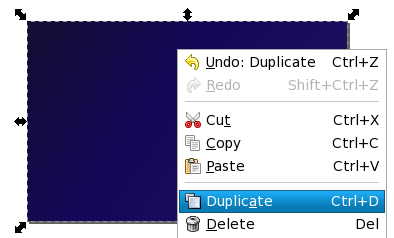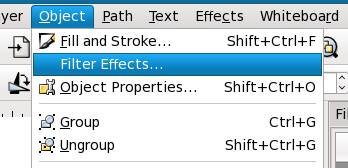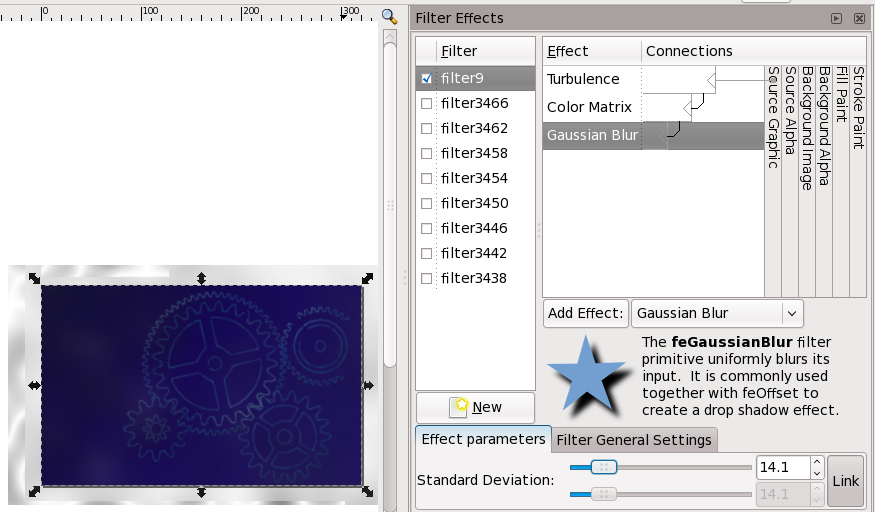Sorry for the delay, this happens when the feedback is happening elsewhere , clashing with May Day and a weekend. (note: I expected a bit of controversy after the Desktop piece in my webcomic and was wondering about the silence).
As usual, Radu is strong and direct, he says "let's be honest: this is what a fanboy does when he doesn't want to admit the betrayal" (linking to the already famous official position from the Red Hat Desktop Team) but he also ask a question which I think deserves an answer:
"By the way, can you explain why should you fight for "Linux on the desktop", when Red Hat Inc. has stopped doing it?"
And the answer is simple as that:
Because *I want* to run Linux on *my* desktop.
And, from what I know, there is a large number of other Fedora contributors who think the same, they want to run Fedora on their desktops and they want a first class experience doing so.
Of course, there is also a large number of Fedora contributors who are content (some are even happy) with running Windows, OS X or
that other Linux distro on their desktop (even I know some) and that is their option.
Here is a short Q&A session expanding on the short answer above:
I am disappointed by the Red Hat's position about the desktop?Sure. I use so-called "traditional desktop". I see the pluses and the minuses of Fedora in this role and understand the need of a large amount of work needed to improve it. And the need of a strong player (and $$$) behind this work.
I feel betrayed by Red Hat in this matter?The (probably unexpected) answer is: No. You feel betrayed when you have expectations from some entity and see those expectations vanishing in the air. Well, at least in the last 5 years, Red Hat never talked about a frontal assault on the traditional desktop and all the official declarations were against it.
Do I think Red Hat is wrong with that position?Yes. I think it is short sighted and in a few years will come back and bite them in the ass. But I also think I understand their reasons and can't provide a better solution (and isn't my business of finding one).
Should I care what happens with Red Hat?To some degree: Yes. I am a Fedora user and a Fedora contributor, Fedora and RHEL are different distros, with different goals and audience. But Red Hat and Fedora are in a symbiotic relation, they will fail or succeed together. And I invested work, time, resources and emotions into Fedora.
I may be completely wrong in my analysis, but I think it is all about
bang for the buck, spending your money in an efficient manner. And currently the best return of your investments in the Linux world seems to be on the server side.
Years ago when Red Hat choose to focus on RHEL and changed the old RHL into the Fedora "community", it was a huge outcry, betrayal accusations and flamewars on the entire Linux world. But so far it
proved as
the correct decision: it created a healthy company growth with a viable business model, which allowed them to expand and hire a lot of great hackers (and not only hackers) to work on various areas, including the desktop.
Desktop is hard, it is a money pit: Corel tried and failed, Linspire tried and failed, Xandros tried and failed, Novell is trying and does not look like succeeding, Ubuntu is still working as a charity and does not appear (so far, but it will come) to try and sustain itself.
Now Red Hat looks like is using the same strategy and focus on JBoss. Money invested there are expected to produce a healthy revenue stream which would allow them to hire even more hackers to work on wonderful things, including the desktop. And we have to take that and be happy with it, even if we wished to see Lunix commercials on TV or so.
Now to the "short sighted" part. While the move to the RHEL/Fedora combo may have proved as a success in terms of revenue, at the same time it acted as one of the primary factors contributing at the creation and success of its primary competition in the Linux world (despite all the collaboration in development, nice talks and Kumbaya singing, the distros
are in competition).
And these days, not pushing the desktop is strengthening the competition. Desktop Linux
is happening and it is happening
elsewhere. And it is important for the server world because it builds
mindshare. The desktop users of today are the decision makers of tomorrow - they will decide what to deploy in their corporations, and that most likely will be the server version of the distro they know from their desktop.
From my
external point of view (which I acknowledged may be completely wrong) I can see an additional reason: corporate culture. Red Hat, as a corporation, seems to understand the server world well (as shown by the feedback from their customers) but not understand so well the consumer desktop (looking at some RH desktop initiatives: OLPC is a failure, going to Windows, RHGD has silently died, GNOME Online Desktop is a few RPMs in F9, but nothing in the
Feature List, Mugshot is in the same boat as GOD). Usually is a god thing to stay with what you know and do it as best as you can, and Red Hat may be doing just that.
![[screencast: add yourself to planet fedora]](http://nicubunu.ro/pictures/screencast-planet-fedora.jpg)
![[fedora webcomic Firefox 3 world record]](http://fedora.nicubunu.ro/webcomics/ff3-world-record.png)
![[fedora webcomic]](http://fedora.nicubunu.ro/webcomics/release_name.png)
 Do you remember a few years ago when all the rage on various Planet aggregators was to use South Park characters as hackergotchis (made with an online Flash tool)? Some planets still use them...
Do you remember a few years ago when all the rage on various Planet aggregators was to use South Park characters as hackergotchis (made with an online Flash tool)? Some planets still use them...
 After a while, without a maintainer, with poor infrastructure (a wiki page), no guidelines and poor SVGs and few active contributors, the development slowed down.
After a while, without a maintainer, with poor infrastructure (a wiki page), no guidelines and poor SVGs and few active contributors, the development slowed down.![[SVG grid]](http://nicubunu.ro/pictures/echo/echo-grid-old.png)
![[SVG guide]](http://nicubunu.ro/pictures/echo/echo_guide1.png)
![[SVG guide]](http://nicubunu.ro/pictures/echo/echo-guide2.png)
![[SVG guide]](http://nicubunu.ro/pictures/echo/echo-guide3.png)
![[SVG grig]](http://nicubunu.ro/pictures/echo/echo-grid.png)
![[fedora webcomic 2.0]](http://fedora.nicubunu.ro/webcomics/twozero.png)
![[fedora webcomic]](http://fedora.nicubunu.ro/webcomics/teaser.png)
![[narro screencast]](http://nicubunu.ro/pictures/narro-screencast.png)
![[01]](http://fedora.nicubunu.ro/webcomics/gfx/countdown-01.png)
![[02]](http://fedora.nicubunu.ro/webcomics/gfx/countdown-02.png)
![[f9 ro]](http://nicubunu.ro/pictures/f9releasero01.jpg)
![[f9 ro]](http://nicubunu.ro/pictures/f9releasero02.jpg)
![[f9 ro]](http://nicubunu.ro/pictures/f9releasero03.jpg)
![[f9 ro]](http://nicubunu.ro/pictures/normal_00004.jpg)
![[f9 ro]](http://nicubunu.ro/pictures/normal_00007.jpg)
![[f9 ro]](http://nicubunu.ro/pictures/audience3.jpg)
![[f9 ro]](http://nicubunu.ro/pictures/Adrian%20Joian%20-%20F9%20new%20gnome.jpg)
![[f9 ro]](http://nicubunu.ro/pictures/Alexandru%20presenting%20The%20Narro%20Project2.jpg)
![[f9 ro]](http://nicubunu.ro/pictures/KDE4%201.jpg)
![[03]](http://fedora.nicubunu.ro/webcomics/gfx/countdown-03.png)
![[fedora webcomic: sulphur]](http://fedora.nicubunu.ro/webcomics/sulphur_smell_fly.png)
![[07]](http://fedora.nicubunu.ro/webcomics/gfx/countdown-07.png)
![[narro translation tool]](http://nicubunu.ro/pictures/fedora-narro-ro.png)
![[fedora translation search]](http://nicubunu.ro/pictures/fedora-translation-google.png)
![[08]](http://fedora.nicubunu.ro/webcomics/gfx/countdown-08.png)

![[9 days]](http://fedora.nicubunu.ro/webcomics/gfx/countdown-09.png)
![[10]](http://fedora.nicubunu.ro/webcomics/gfx/countdown-10.png)
![[13]](http://fedora.nicubunu.ro/webcomics/gfx/countdown-13.png)
![[fedora webcomic: robots]](http://fedora.nicubunu.ro/webcomics/linux_for_robots.png)
![[14]](http://fedora.nicubunu.ro/webcomics/gfx/countdown-14.png)
![[15]](http://fedora.nicubunu.ro/webcomics/gfx/countdown-15.png)











![[red hat and the desktop]](http://fedora.nicubunu.ro/webcomics/the_desktop.png)



